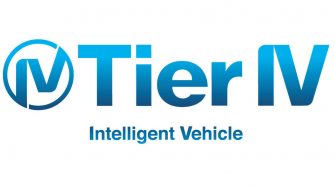The future is automation, where Artificial Intelligence and the Internet of Things together will rule the technological aspects of our lives.
With the advent of Smart Watches, Voice Assistants and Smart Cars, the one thing we can be sure of is that the future will be full of similar devices which will make our life easier, our environment safer and the gadgets we use will be more personalized than ever.
These technological advancements will also bring tremendous change in various sectors, including Healthcare, Supply Chain Management, Automotive, Education and more.
According to research conducted by McKinsey, AI and automation will be responsible for boosting the global economy by increasing the productivity of businesses.
What is AI?
AI or Artificial Intelligence is the intelligence embedded in machines that are trained to impersonate human or animal intelligence, emotions and behavior.
In other words, AI is a computer program that is developed in a way so that it has its own thinking and learns from its experiments/experiences.
For example, Alexa is an AI developed by Amazon, which is built to work as a Virtual Assistant to humans. Alexa is trained to recognize human speech, understand instructions so that she can fulfill the directed tasks, for example setting timers, playing music, purchasing groceries, etc.
Fun fact: The world’s most famous Robot pet is Aibo — whose proud owner is Sony. This pet-bot is so smart that it can develop its personality with time, recognize faces, and communicate with humans using musical tones.
Types of AI
There are four types of Artificial Intelligence which are as follows:
These are the oldest forms of AIs that do not store memory or learn from past experiences/experiments.
They react to a specific set of inputs and do not improve their present operations based on their previous activities.
These AIs are an improved version of Reactive Machines and are capable of learning from their previously collected data.
Most of the present-day AI comes under this category. These AIs are trained with humongous data and use their memory from previous actions to define the solution for present problems. Chatbots, self-driving vehicles come under this category.
Theory Of Mind is a very advanced category in AI on which several studies are still going on. These are the types of AIs that we see in science fiction movies or shows. These AIs have the capabilities of understanding human desires, intent and form decisions based on the AI theory.
A booming field of research called Artificial Emotional Intelligence caters to these AIs. Hence in the future, AI machines might be competent enough to understand our thought processes and interact with us based on our emotions, beliefs, circumstances, etc.
This category of AIs will have self-awareness or consciousness and are the culmination of AI development.
AI evolution would have to reach this stage to have ideas of their own.
Fact: This advancement in the field of AI can be dangerous to the human race too, and many laws have already been proposed by many organizations so that human autonomy is respected over AIs.
Why AI is Important?
AI(s) will play a crucial role in our future because:
- AI helps in reducing human error and works with remarkable accuracy. This capability is very useful, especially in the field of healthcare.
- AI makes our life easier by adding intelligence to the devices we use. Most of the repetitive tasks like shopping, cleaning, etc., can be reduced with an AI-bot.
- This technology will make traveling easy for us as autonomous vehicles will make driving unnecessary.
- Virtual tutors can assist human teachers in catering to the individual needs of children in the education domain.
- AI virtual assistants will transform current customer service giving personalized help to customers and hence improving customer satisfaction.
- In the entertainment field, AI will make movies, shows, songs, and streaming feeds more customized for us, making our decision-making process easier.
What Is IoT?
The Internet of things is the interconnection of various physical objects connected to the internet who communicate with each other with wireless transmission of data. This sending and receiving of data don’t require human intervention.
These objects are embedded with sensors, actuators, software, etc.
The Internet of Things has been a pioneer in changing the way we communicate with our devices.
Let’s look at some figures.
- Every second, 127 new IoT devices are getting connected to the internet!
- The market for wearable devices boosted to 223% in 2015
- 54% of executives who implemented AI and IoT in their business claim it has increased their productivity tremendously
- Automotive IoT Market will be worth 541.73 Billion by 2025
IoT in Healthcare
The Internet of Things will play a prominent role in advancing Healthcare, and the revenues are projected to be a whopping 135 billion by 2025.
Fitness devices like fitness bands, blood pressure monitors, heart rate monitors will soon be IoT optimized so that the patient is treated timely.
Some other applications of IoT in the Healthcare domain are:
- Ease of tracking in necessary medical staff and medical equipment, especially in the case of emergencies.
- Real-time monitoring of people and generating alerts to the physician in case of any abnormality.
- Remote monitoring of patients by doctors so that patients don’t need to stay in hospital or visit the hospital frequently.
How AI Enhances IoT?
The Internet of things and Artificial Intelligence hugely complement each other. IoT devices collect huge amounts of data during operations with the help of their sensors which can be used by AI to improve the performance of the devices.
According to research, 2.5 quintillion bytes of data are generated by IoT devices every day.
By being AI optimized, IoT devices can learn the pattern of the environment they are working in, detect anomalies, if any and also decrease downtime.
For example, MindAI is a thermostat that learns how you like your room temperature and learns how you adjust your temperature in a day. After learning your behavior, it adjusts the AC without your intervention so that you get maximum comfort. If it wasn’t AI optimized, this thermostat would have run your AC at a fixed temperature which you would give as input.
Other benefits of AIoT or Artificial Intelligence Technology (AI+IoT) are:
- Analysis of data so collected is optimized and acts as feedback for future operations.
- Increases autonomy of the devices since they AI embed them, thus learning previous patterns
- Decreases the downtime
- Increases efficiency and effectiveness of processes
- Provide more operational insights
Role of AI in IoT Security
With the growing number of IoT devices, Cyber Attackers are working on ways to penetrate these networks to get access to crucial data. The attacks on these vulnerable IoT devices can be dangerous to organizations that are dependent on them.
That’s where Artificial Intelligence comes into the picture.
According to research conducted at the University of District of Columbia, the application of AI in deploying security to IoT will help us in realizing its full potential.
But how will AI help in providing security to IoT devices and networks?
AI will help in monitoring the network continuously. The patterns of the previous attacks will help AI in understanding what future attack scenarios might look like and hence create solutions to resolve them. This is called predictive analysis, which will help to combat modified security threats.
Hence equipped with previous data AI can enhance the security aspect of the devices. AI will also help in monitoring these devices without human interference and hence automate the process.
How AI and IoT are Changing Digital Word (Technology)
The following graph will help you in estimating the growth in the market which AI and IoT, when blended together, will capture, clearly in the coming future, both technologies together will be dominating the Tech Industry.
AI and IoT together (or AIOT) will set the foundation of the automation world as we will know it. With the capability of IoT devices to capture huge amounts of data from the environment and the Artificial Intelligence model’s ability to extract valuable information from IoT — together they can implement better solutions.
The two technologies together will change the business scenarios around the world.
Fact: AI and IoT together are projected to reach a market size of 16.2 Billion with a CAGR growth rate of 26 percent.
Here are some ways through which we can analyze the impact AIOT will have on our business industries:
- Businesses who implement AIOT will have the edge over their competitors since they can get more detailed insights that weren’t known before.
- Hiring processes will become more structured and faster. The process of recruiting can be very time-consuming if done the traditional way. Background check, searching specific skill sets and experience, analyzing the person’s behavior becomes easier with AIOT involvement.
- Most of the industrial tasks will become automated, safer and more accurate.
- These technologies make it possible for businesses to do the processing in the IoT devices themselves, therefore, increasing the security of data and saving time.
- Consumer behavior patterns can be traced, and the purchasing power of the targeted consumer can be analyzed easily.
In conclusion, the businesses will become smarter, faster and their scalability will become easier.
Examples of AI and IoT in Action
Smart Home is the umbrella term for various technologies which make a person’s life easier, safer and digitized at home. All the devices we use at home, be it Television, washing machine, air-conditioner, microwave or even our simple door become smart once they are connected to the internet.
These appliances can be equipped with various AI technologies, for example, voice recognition, face recognition, etc., so that they add more value to our lives and hence making it easier.
Smart Speakers have made a good place in the market, with AIs like Alexa, Siri and Google already becoming household names. Smart homes can also help us be energy efficient and make our environment safer.
Driverless cars are probably the most popular AIOT technology out there. Google Self-Driving car name Waymo is still under testing and will be launched soon.
Following are some of the benefits these cars will provide:
- These driverless cars are connected to each other and hence communicate crucial details to each other, for example, traffic lights stats, road congestion, etc. This helps in saving fuel of the vehicle and hence reduces emissions.
- Since these vehicles are connected to each other and to the internet, they will always strive to find the optimum way to reach the passenger and to his/her destination. Hence saving passenger’s time as well as reducing traffic.
- These cars will enhance passenger’s experience while traveling and also increase the safety parameter since the chances of error are very low when compared to human drivers.
Wearable technologies like Smart Watches have become very popular. These watches track your sleeping patterns, heart rate, exercise routine continuously and give you an analysis of your health.
In healthcare industries, wearable technology is being researched so that they can alert the patient, their family, or doctor if any abnormality is found in the body function. The wearable helps in wasting no time for treating the patient.
Though not extensively, AIOT has started making an impact in the agriculture domain too. Farmers have started adopting precision agriculture which uses AI technology to help them keep a check on diseases and pests that attack plants.
Some AI models help in forecasting the seasons and upcoming weather patterns, which help the farmer make better planning for a good quality harvest. Drones enabled with computer vision, and deep learning are used by farmers to analyze the areas of farms that can be improved further.
AI sensors are helping farmers in deciding which herbicide will be best suited for a particular weed and also help in determining the accurate quantity needed. This helps in reducing the excessive use of herbicides in plants which is beneficial both for the environment and human consumption.
- STRENGTHENED RISK MANAGEMENT
Businesses use IoT and Artificial Intelligence together to mitigate the risks, learn from them and prepare better solutions in the future. AIOT helps them automate the process, and AI models with their unlimited learning capability are efficient enough to handle modified attacks.
IoT devices help the companies to not be totally dependent on a central processing system cloud. Since most of the processing and analysis takes place in a distributed manner, the risk of a data breach or data exposure reduces to a great extent. This also helps in reducing the time of the processing.
Many banks have adopted artificial intelligence to make decisions on fraud faster. These technologies also help in providing better insights into tradings, stock markets, and predicting financial markets and hence reducing the financial loss for the organizations.
Conclusion
The future will belong to those who adopt AI and IoT to scale their businesses. Companies like Amazon, Tesla, Google, and Apple have already started harnessing the benefits of AIOT.
The Internet of Things helps in collecting, processing, and analyzing data at every step and hence provides valuable insights into these processes. The implementation of the results from these is faster than the traditional methods, thanks to the continuous learning of Artificial Intelligence models.
These technologies have already made an impact on consumers’ lives which we can see with the increasing popularity of smart speakers, smartwatches, smart vehicles, etc.
Together these technologies will be responsible for the digitization of all the sectors and bring tremendous changes in our lives through automation.
Image Credit: pixabay; pexels

















